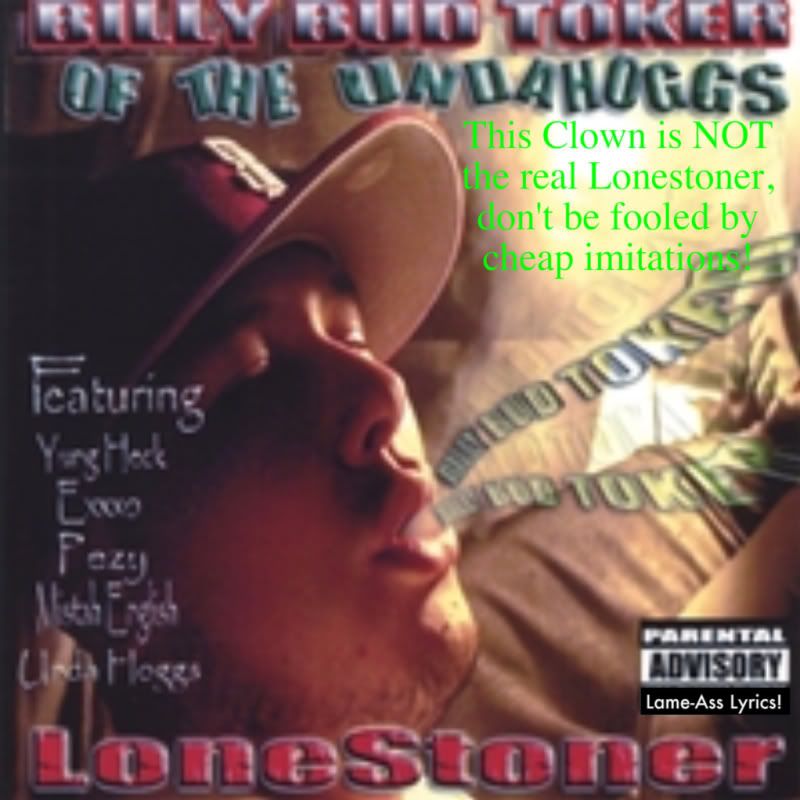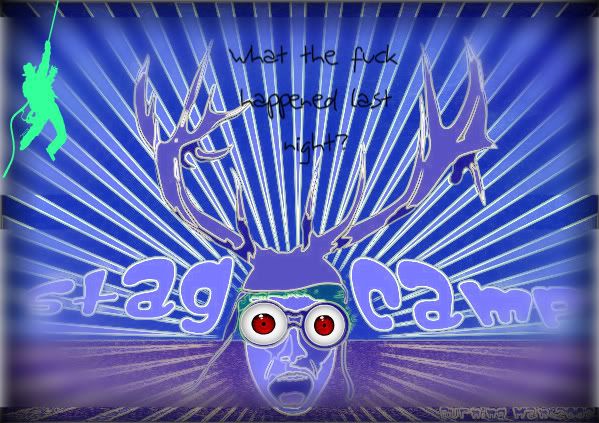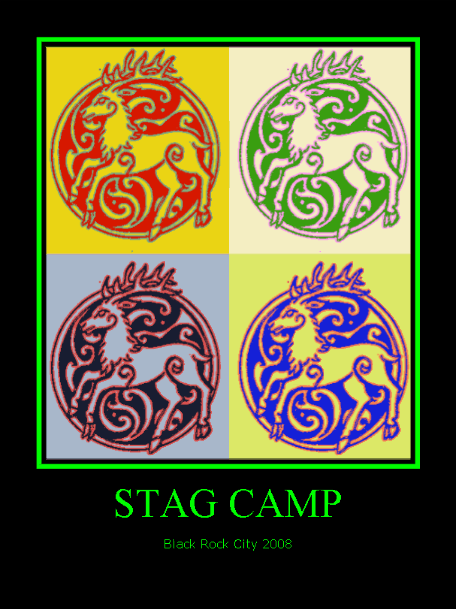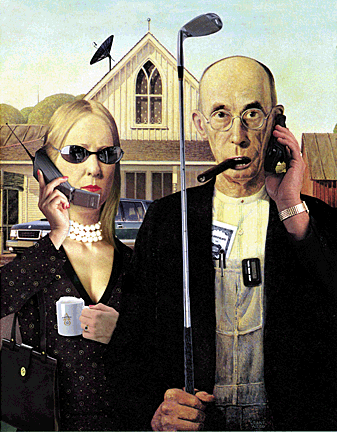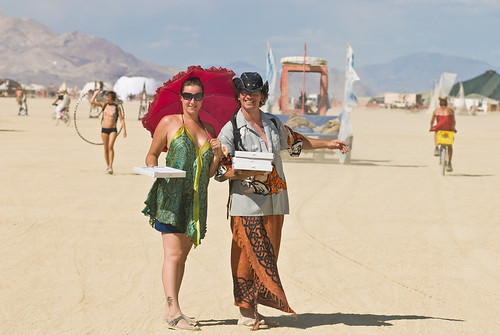



JACK NICHOLSON: My point of view, while extremely cogent, is unpopular.
LOS ANGELES TIMES: Which is?
JACK NICHOLSON: That the repressive nature of the legalities vis-a-vis drugs are destroying the legal system and corrupting the police system.
LOS ANGELES TIMES: Let's talk about acting for a minute.
.
CONSUMERS UNION—the highly respected, scrupulously impartial organization responsible for Consumer Reports—studied the drug problem in this nation long and hard.
Its conclusions—yet unpublished—are: This nation's drug laws and policies have not been working well; on that simple statement almost all Americans seem agreed. . . . They are the result of mistaken laws and policies, of mistaken attitudes toward drugs, and of futile, however well-intentioned, efforts to "stamp out the drug menace." [What we have in this country is] aptly called the "drug problem problem"—the damage that results from the ways in which society has approached the drug problem.
The Consumers Union report made six recommendations. I quote:
1. Stop emphasizing measures designed to keep drugs away from people.
2. Stop publicizing the horrors of the "drug menace."
3. Stop increasing the damage done by drugs. (Current drug laws and policies make drugs more rather than less damaging in many ways.)
4. Stop misclassifying drugs. (Most official and unofficial classifications of drugs are illogical and capricious; they, therefore, make a mockery of drug law enforcement and bring drug education into disrepute. A major error of the current drug classification system is that it treats alcohol and nicotine—two of the most harmful drugs—essentially as non-drugs.)
5. Stop viewing the drug problem as primarily a national problem, to be solved on a national scale. (In fact, as workers in the drug scene confirm, the "drug problem" is a collection of local problems.)
6. Stop pursuing the goal of stamping out illicit drug use.
.
The report, which is nearly six hundred pages long, concludes, These, then, are the major mistakes in drug policy as we see them. This Consumers Union Report contains no panaceas for resolving them. But getting to work at correcting these six errors, promptly and ungrudgingly, would surely be a major step in the right direction.
.
I'm sorry. I lied. The previous excerpts were not from a "yet unpublished" report. The report was published in 1972. It was published by Consumers Union in book form, Licit and Illicit Drugs. It asked for its proposed changes to be made "promptly and ungrudgingly." Instead in 1972, President Nixon began our most recent war on drugs. How successful has prohibition been? To give but one example: since 1972, according to the office of National Drug Control Policy, annual cocaine use in this country has risen from 50 metric tons to 300 metric tons.
.
How and Why Drugs Became Illegal
.
One might wonder after reading the United States Constitution how Congress can justify making laws against drug sale, use, and possession. As we have seen, the enumerated powers given Congress by the Constitution have to do with keeping the national borders strong, keeping the business environment healthy, and collecting taxes. It would take the legal word-bending ability of a lawyer to stretch the enumerated powers enough to include making drugs illegal. Alas, one thing Congress has plenty of is lawyers. Here, then, is the abbreviated story of how and why drugs became illegal in the United States. It is filled with more abuses, horrors, deceptions, and possible harm than any illegal drug has ever done. Prior to 1883, there were no federal laws against the manufacture, sale, use, or possession of drugs. As drugs had been available since before the Pilgrims arrived, the United States seemed to survive—even thrive—with no drug restrictions whatsoever. The primary "drug problem" was alcohol—not marijuana, morphine, or cocaine. Even state laws against drugs did not begin to appear until the late nineteenth century. In California in 1875, a blatantly racist law against opium was passed. Prejudice against the Chinese was high. The city of San Francisco prohibited establishments where opium was smoked. The law—like all drug laws that followed—failed. The large, well-run opium houses closed, but were immediately replaced by smaller, less reputable opium dens. A similar law was passed in Virginia City, Nevada, and similarly failed to work. Rather than realizing that such laws don't work, the Nevada state legislature made even more stringent laws. The state laws didn't work any better than the city laws, but that didn't stop other cities and states from passing laws. When all these laws failed, the United States Congress got involved. (Sound familiar?)
.
In 1883, Congress used its constitutional power to "lay and collect taxes, duties, imposts, and excises" to heavily tax imported smoking opium. That abuse of the tax provision of the Constitution was the foot in the door. What followed was a wedge of misuses and abuses of power that not only tore the door off the hinge, it ripped away the entire front of the house. Once taxation was used to act on a popular but inaccurate belief (in this case that the Chinese were debauching the youth of America by enticing the innocent young into their opium dens), the die was cast. The power to tax, then, was no longer what the founding fathers had intended—a way to raise money—but had become a way to legislate "morality" as well. Making matters even worse, as this was a prohibition act pretending to be a tax bill, its enforcement fell under the Department of the Treasury. From 1883 until 1968, the Secretary of the Treasury had the dual duty as not only Collector of the Tax, but Keeper of the Public Good. Even if the United States needed a Keeper of the Public Good, putting it in the same department as the tax collectors and money counters was probably the worst choice.
The country's first drug ban explicitly targeted the opium of "the heathen Chinee." Cocaine was first banned in the south to prevent an uprising of hopped-up "cocainized Negroes."
Once the precedent that the federal government could legislate morality was established, no one gave a second thought to the law passed five years later prohibiting altogether the importation of certain kinds of opium and preventing the Chinese in America from importing opium at all. The United States Treasury was now giving up revenue (the tariff on the opium imported by the Chinese into America) in exchange for regulating consensual personal behavior. The anti-Chinese prejudice was such that the United States Treasury was permitted to abandon its primary job—collecting and spending money—in exchange for this new mission. Over the next thirty years, taxes on smoking opium went up, went down; smoking opium was banned altogether; the ban was lifted and reinstated again. During this time, the tax ranged from $6 per pound to $300 per pound. All that these regulatory and restrictive efforts accomplished, however, was to build the Chinese underworld (the "tongs"), corrupt the Treasury Department, and increase the nation's opium smoking at least nine fold. The Secretary of the Treasury wrote the Speaker of the House of Representatives on January 12, 1888, "Although all possible efforts have been made by this Department to suppress the traffic, it has found it practically impossible to do so." The United States government, of course, responded with more laws and more law enforcement officers. As this onslaught only affected "the heathen Chinee" [sic] and not "Americans," no one much cared. All other forms of opium—the types preferred by most white Americans—were perfectly legal and modestly taxed. Why should anyone worry about defending the rights of the Chinese? If they wanted to smoke opium, it was said, they could go back to China. A legal precedent, however, was set by the racist opium restrictions.
.
The next major step in federal drug enforcement was the 1906 Pure Food and Drug Act. This act said that all patent medicines containing drugs had to say so on the label and, with later amendments, had to state the amount of the drug. This requirement was a positive step in that it allowed people to regulate the kind and amount of drugs they took. It was only later that this act became yet another weapon in the arsenal used for the federal attack on individual choice. (More on the Pure Food and Drug Act in the chapter, "Regenerative Use of Drugs and Other Unorthodox Medical Practices.") The next major move by the federal government—and the great-granddaddy of all federal drug restrictions—was the Harrison Narcotics Act of 1914. The bill's chief proponent was then–Secretary of State William Jennings Bryan, a staunch fundamentalist, Prohibitionist, and famed orator. His oratory on behalf of Woodrow Wilson won Wilson the presidential nomination, and Wilson appointed him Secretary of State in appreciation. Eleven years later, Bryan would lead the prosecution in the Scopes Monkey Trial, winning a conviction against the schoolteacher who had the audacity to teach Darwin's "unbiblical" theory of evolution in the public schools. The Harrison Act, in fact, did not prohibit drugs. The act only regulated and taxed the importation and distribution of "opium or coca leaves, their salts, derivatives, or preparations, and for other purposes." It seemed reasonable to regulate, not prohibit, opium, cocaine, and their derivatives. "It is unlikely that a single legislator realized in 1914," wrote Edward M. Brecher, "that the law Congress was passing would later be deemed a Prohibition law."
Even in the National Report on Drugs, Crime, and the Justice System, published in December, 1992, the United States government admits, The Act was ostensibly a revenue measure that required persons who prescribe or distribute specific drugs to register and buy tax stamps.
The Oxford English Dictionary defines ostensibly as "under mere profession or pretense." The government admits, then, that the law was deceptive. It deceived the legislators who passed it and the public who accepted it. The only people who complained were physicians. This from the National Report: From the first, the Treasury Department held that medical maintenance of opiate addicts (treatment through declining usage) was not permissible, but physicians opposed this view. . . . Initial enforcement included arrests of physicians, pharmacists, and unregistered users.
Six months after the passage of the Harrison Act, an editorial in American Medicine stated, Narcotic drug addiction is one of the gravest and most important questions confronting the medical profession today. Instead of improving conditions, the laws recently passed have made the problem more complex. . . . Abuses in the sale of narcotic drugs are increasing . . . a particularly sinister consequence . . . is the character of the places to which [addicts] are forced to go to get their drugs and the type of people with whom they are obliged to mix.
.
In 1918, the Secretary of the Treasury appointed a committee to look into the drug problem. The committee found that, in the four years since the passage of the Harrison Act, underground drug traffic was flourishing, "dope peddlers" had established a national organization, smuggling was rampant, and the use of the forbidden substances had increased. What did the government do? Well, of course, it made new and stricter laws. In 1922, it created the Federal Narcotics Control Board. In 1924, it banned the importation or manufacture of heroin in any form, even for medical purposes. Since that time, one of the most effective painkillers known has been missing from the pharmacopoeia of physicians—even though in 1925 Dr. Lawrence Kolb concluded, after an elaborate study, "If there is any difference in the deteriorating effects of morphine and heroin on addicts, it is too slight to be determined clinically." In 1967, the President's Committee on Law Enforcement and Administration of Justice came to the same conclusion: "While it is . . . somewhat more rapid in its action, heroin does not differ in any significant pharmacological effect from morphine." Has either of these reports changed the government's mind? Come now. It was, in fact, the heavy restrictions placed on morphine that turned addicts to heroin. Like hard alcohol in place of beer and wine during Prohibition, heroin—being more concentrated—was easier to transport and smuggle. People who were content to drink morphine began injecting heroin simply because heroin was more available and the cost-per-high was lower. (As we shall see shortly, the same is true today in the relationship between crack and cocaine.) Did the new and stricter laws work? Here is an excerpt from an editorial in the June 1926 issue of the Illinois Medical Journal:
The Harrison Narcotic law should never have been placed upon the statute books of the United States. It is to be granted that the well-meaning blunderers who put it there had in mind only the idea of making it impossible for addicts to secure their supply of "dope" and to prevent unprincipled people from making fortunes and fattening upon the infirmities of their fellow men.
As is the case with most prohibitive laws, however, this one fell far short of the mark. So far, in fact, that instead of stopping the traffic, those who deal in dope now make double their money from the poor unfortunates upon whom they prey. . . .
The doctor who needs narcotics used in reason to cure and allay human misery finds himself in a pit of trouble. The lawbreaker is in clover. "
.
The government's reaction? Why, of course, more laws, stricter enforcement of the laws already on the books, and yet another agency. In 1930, the Federal Bureau of Narcotics (FBN) was created within the Treasury Department under the direction of Commissioner Harry Anslinger.
Enter one of the true villains of the piece—particularly with regard to marijuana prohibition—Commissioner Anslinger. From 1930 until he was forced out of office by President Kennedy in 1962, Anslinger ran the FBN with the same tight reins—and questionable ethical procedures—that his contemporary J. Edgar Hoover held at the FBI.
By 1932, the evangelicals were in desperate need of a Cause and a Leader. Their previous Cause, Prohibition, was obviously running out of steam, as had their previous Leader, William Jennings Bryan. (Shortly after winning the glorious victory for the literal interpretation of the Bible in the Scopes Monkey Trial, he literally ran out of steam and died.) After Prohibition the evangelicals turned to keeping creationism taught in the public schools, censoring those disgraceful Hollywood movies, and ending the drug menace. In the latter Cause, they gladly cleaved to the bosom of their new leader, Commissioner Harry Anslinger.
.
Poor Harry. Try as he might, he never obtained the recognition and personal glory Hoover did at the FBI—or even that of Postmaster-Turned-Hollywood-Censor Hayes (with his Hayes Office and Hayes Production Code). For some reason, Anslinger had a real seed under his dentures when it came to the subject of marijuana. Yes, he was ruthless in pursuing all those other narcotics violators—the coke-heads and the junkies—but there was something about marijuana that infuriated him. Perhaps it was because marijuana was not officially labeled a narcotic, thus not under his jurisdiction. Perhaps it was his well-documented racism. Perhaps he wanted a drug to call "his own" and hold proudly before the evangelicals as David had held the head of Goliath. Perhaps he wanted to be a hero in the Hearst papers, as Hearst was suddenly printing provocative anti-hemp stories. Perhaps he was on the take from DuPont. Perhaps it was some combination of these.
.
Dupont? Hearst? What did two business magnates have to do with marijuana prohibition? Plenty. In the mid-1930s, machinery was perfected that would allow the hemp fiber to be more easily and economically separated from the plant. This meant paper, clothing, and other manufactured articles could be produced from hemp at prices far more competitive than ever before. This did not sit well with two American giants: William Randolph Hearst and the DuPont Corporation. Hearst not only printed newspapers; he made the paper on which to print them. If hemp became the primary source of paper, not only would much of Hearst's paper-making machinery become obsolete, but all those forests he purchased could only be used as backdrops for Marion Davies movies. Hearst began attacking hemp at every opportunity. Earlier, Hearst had successfully turned public opinion against Hispanics. Many believe he and fellow yellow-journalism baron Joseph Pulitzer started the unnecessary Spanish-American War. Hearst used the Mexican term for hemp, marijuana, in his many salacious anti-hemp stories. Most Americans never associated marijuana with the hemp their grandfathers grew, or the extract of cannabis their grandmothers took. Hearst's headlines included such joys as
NEW DOPE LURE, MARIJUANA, HAS MANY VICTIMS
.
MARIJUANA MAKES FIENDS OF BOYS IN 30 DAYS
.
HOTEL CLERK IDENTIFIES MARIJUANA SMOKER AS"WILD GUNMAN" ARRESTED FOR SHOOTINGS
.
And guess who was quoted in Hearst's papers as saying, "If the hideous monster Frankenstein came face to face with the monster marijuana he would drop dead of fright"?
Yes, none other than "H. J. Anslinger, head of the Federal Narcotics Bureau." Hearst's paper went on to "report," This is not overstatement. Users of the mari- juana weed are committing a large percentage of the atrocious crimes blotting the daily picture of American life.
It is reducing thousands of boys to CRIMINAL INSANITY.
And ONLY TWO STATES have effective laws to protect their people against it.
The marijuana weed, according to Mr. Anslinger, is grown, sold, and USED in every State in the Union. He charges, and rightly, that this is not a responsibility of one State, but OF ALL—and of the federal government.
DuPont, meanwhile, had just patented a process for making paper from wood pulp (which Hearst would use extensively in the years to come). The process, which relied heavily on DuPont chemicals, was not necessary in manufacturing paper from hemp. Additionally, DuPont had recently taken German patents and perfected the "miracle fiber" nylon, to be manufactured from coal tar and petroleum products. Inexpensive, readily grown hemp fibers would put a damper on two of DuPont's future money makers, paper production and textiles. Make of these facts what you will. One thing is certain: Hearst and DuPont made a fortune thanks to the prohibition of hemp.
Anslinger used his position of authority to encourage states and cities to ban marijuana. In 1935, Anslinger announced, In the absence of Federal legislation on the subject, the States and cities should rightfully assume the responsibility for providing vigorous measures for the extinction of this lethal weed, and it is therefore hoped that all public-spirited citizens will earnestly enlist in the movement urged by the Treasury Department to adjure intensified enforcement of marijuana laws.
By 1937, forty-six of the forty-eight states, as well as the District of Columbia, had laws against marijuana. At Anslinger's urging, marijuana was labeled a narcotic and had the same strict penalties as morphine and heroin. The wild reports continued in Hearst newspapers and magazines. Commissioner Anslinger took quill in hand himself on occasion—his prose as bad as his prohibitions. This, for example, from Hearst's American Magazine of July 1937: An entire family was murdered by a youthful [marijuana] addict in Florida. When officers arrived at the home they found the youth staggering about in a human slaughterhouse. With an ax he had killed his father, mother, two brothers, and a sister.
He seemed to be in a daze. . . . He had no recollection of having committed the multiple crime. The officers knew him ordinarily as a sane, rather quiet young man; now he was pitifully crazed. They sought the reason. The boy said he had been in the habit of smoking something which youthful friends called "muggles," a childish name for marijuana.
.
I don't know about you, but I've never met a pothead that ambitious. In Hollywood, in his famous Production Code, Mr. Hayes prohibited any positive mention of drugs. (Cigarettes, of course, were just fine.) Hollywood joined in the propaganda madness (at Hearst's encouragement?) and made the now-classic Reefer Madness. In 1937, Anslinger rushed through Congress the Marijuana Tax Act. Anslinger had waited because the question of whether or not it was acceptable to use the tax provisions of the Constitution to justify prohibitions was before the Supreme Court. On March 29, 1937, the Supreme Court decided that machine guns could be prohibited by first passing an act taxing them, then using the tax-law to ban them altogether. On April 14, 1937, the Marijuana Tax Act was introduced to Congress. The testimony before the congressional committee was, for the most part, provided by Anslinger, Anslinger employees, and Anslinger reading Hearst newspaper articles, some of which he had written. The hearings were reminiscent of the scene from John Huston's film, The Bible, in which John Huston, playing Noah, has a conversation with God, also played by John Huston. The film was produced and directed by John Huston. The narrator: John Huston. Curiously, neither Hearst, DuPont, nor Anslinger had by 1937 created the myth that marijuana use leads to heroin addiction. During the House hearings, a representative remarked, "I am wondering whether the marijuana addict graduates into heroin, and opium, or a cocaine user." Commissioner Anslinger replied, No, sir; I have not heard of a case of that kind. The marijuana addict does not go in that direction.
And how many doctors were heard in the congressional hearings in 1937? Precisely one. He represented the American Medical Association. The AMA opposed the bill. At least twenty-eight medicinal products containing marijuana were on the market in 1937, the doctor pointed out; drugs containing marijuana were manufactured and distributed by the leading pharmaceutical firms; and marijuana was recognized as a medicine in good standing by the AMA. From an editorial in the Journal of the American Medical Association (May 1, 1937): After more than 20 years of federal effort and the expenditure of millions of dollars, the opium and cocaine habits are still widespread. The best efforts of an efficient Bureau of Narcotics, supplemented by the efforts of an equally efficient Bureau of Customs, have failed to stop the unlawful flow of opium and coca leaves and their components and derivatives, on which the continuance and spread of narcotic addiction depends.
Like the Harrison Narcotics Act before it, the Marijuana Tax Act claimed—even in the title of the bill—only to tax marijuana. It was yet another deception perpetrated on Congress and the American people: the intent of the bill was never to tax, but to prohibit. Beyond mere deception, however, the Big Lie to Congress was yet to come.
.
In testifying before the congressional committee, the doctor sent by the AMA said the AMA had only realized "two days before" the hearings that the "killer weed from Mexico" was indeed cannabis, the benign drug used and prescribed by the medical profession for more than a hundred years. Said Dr. Woodward, We cannot understand, yet, Mr. Chairman, why this bill should have been prepared in secret for two years without any intimation, even to the [medical] profession, that it was being prepared.
Anslinger and the committee chairman, Robert L. Doughton,DuPont Dynasties, Robert Doughton was a key DuPont supporter in Congress.> denounced and curtly excused Dr. Woodward. When the marijuana tax bill came before Congress, one pertinent question was asked from the floor: "Did anyone consult with the AMA and get their opinion?" Representative Vinson answered for the committee, "Yes, we have . . . and they are in complete agreement." The Big Lie. The bill passed, and became law in September 1937. Anslinger was furious with the AMA for opposing him before the congressional committee. As the commissioner of the Federal Bureau of Narcotics, he could prosecute any doctors who prescribed narcotics for "illegal purposes." Which purposes were "illegal" was pretty much Anslinger's call. From mid-1937 through 1939, more than 3,000 doctors were prosecuted. In 1939, the AMA made peace with Anslinger and came out in opposition to marijuana. From 1939 to 1949, only three doctors were prosecuted by the FBN for drug activity of any kind.
.
In 1944, Mayor Fiorello La Guardia and the New York Academy of Medicine released the La Guardia Marijuana Report, which, after seven years of research, claimed that marijuana caused no violence and had certain positive medical benefits. In a rage, Anslinger banned all marijuana research in the United States. He attacked La Guardia vehemently. In 1948, however, Anslinger dropped the "marijuana causes violence" argument. He made, in fact, a complete about-face when he testified before Congress in 1948 that marijuana made one so tranquil and so pacifistic that the communists were making abundant supplies available to the military, government employees, and key citizens. Marijuana was now part of a Communist Plot aimed at weakening America's will to fight. That this statement was a complete reversal of his congressional testimony only eleven years before went unnoticed. Anti-communism put Anslinger back in the public eye, along with his good friend Senator Joseph McCarthy. It was later revealed by Anslinger in his book, The Murderers, and also by Dean Latimer in his book, Flowers in the Blood, that Anslinger supplied morphine to McCarthy on a regular basis for years. Anslinger's justification? To prevent the communists from blackmailing such a fine American just because he had a "minor drug problem." In 1970, in passing the Controlled Substances Act, the federal government shifted its constitutional loophole for jailing drug users and providers from taxation to the federal government's obligation to regulate interstate traffic. This is as dramatic a violation of the Constitution as the taxation excuse, but it fit the government's plan better. Under this law a bureaucrat—usually not elected—decides whether or not a substance is dangerous and how dangerous that substance is. There's no more messing around with legislatures, presidents, or other bothersome formalities. When MDMA (ecstasy) was made illegal in 1986, no elected official voted on that. It was done "in house." People are now in jail because they did something that an administrator declared was wrong.
.
The Controlled Substances Act was circulated to the states where it was enthusiastically received; most states have modeled their programs on the federal plan. There is no longer a need, then, to deceive legislators: the agency heads and their minions simply decide what the law is, and that's that. Today, the Federal Bureau of Narcotics is, like its former director Anslinger, no more. How's this for a bureaucratic shuffle: In 1968, the Federal Bureau of Narcotics (FBN) was transferred from the Treasury Department to the Justice Department, where it was merged with the Bureau of Drug Abuse Control (BDAC) to form the Bureau of Narcotics and Dangerous Drugs (BNDD). In 1973, during the early skirmishes of the war against drugs, the Bureau of Narcotics and Dangerous Drugs (BNDD), the Office for Drug Abuse Law Enforcement (ODALE), and the Office of National Narcotics Intelligence (ONNI) all combined to form the Drug Enforcement Administration (DEA). (I hope you're paying attention: there will be a quiz.) As the war against drugs escalated, one agency was not enough. In 1988, the National Drug Enforcement Policy Board (NDEPB) and the Office of National Drug Control Policy (ONDCP) were formed. The director of ONDCP—now a cabinet-level position—was given the title that Mr. Anslinger (anti-communist sentiments notwithstanding) would have killed for: The Drug Czar.





